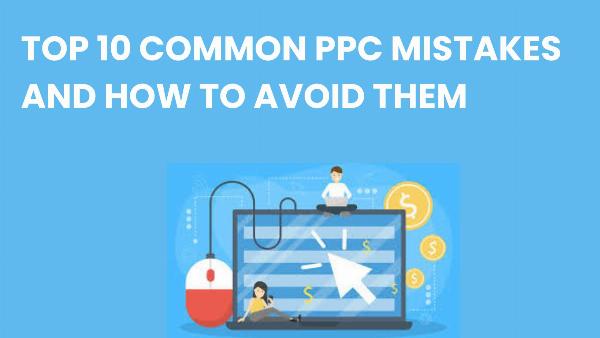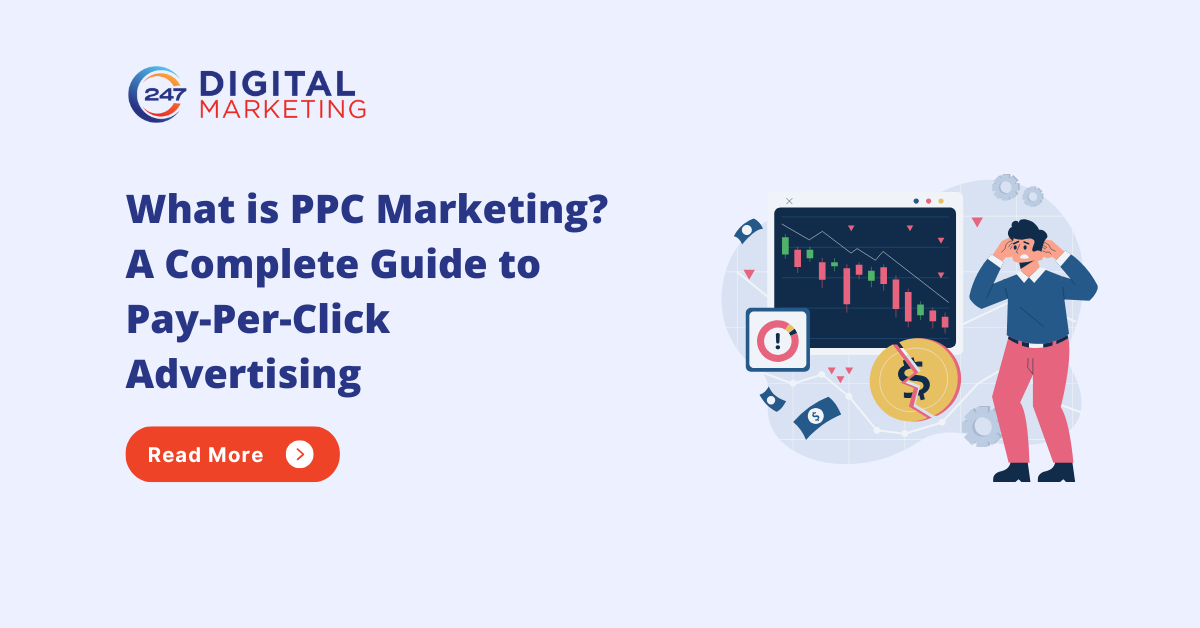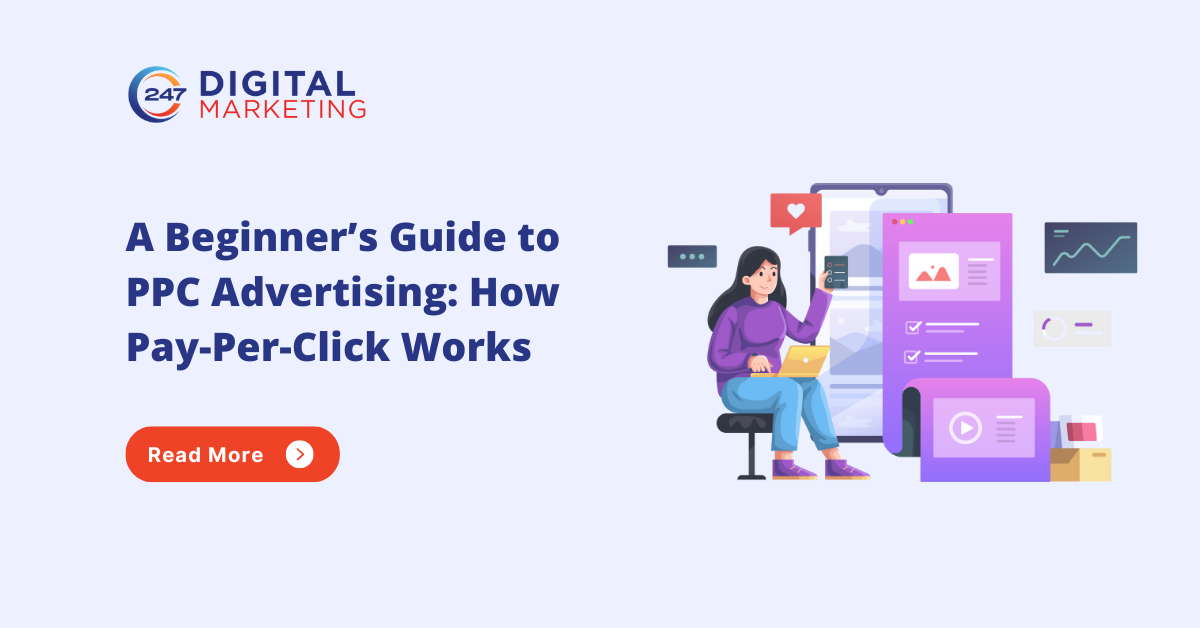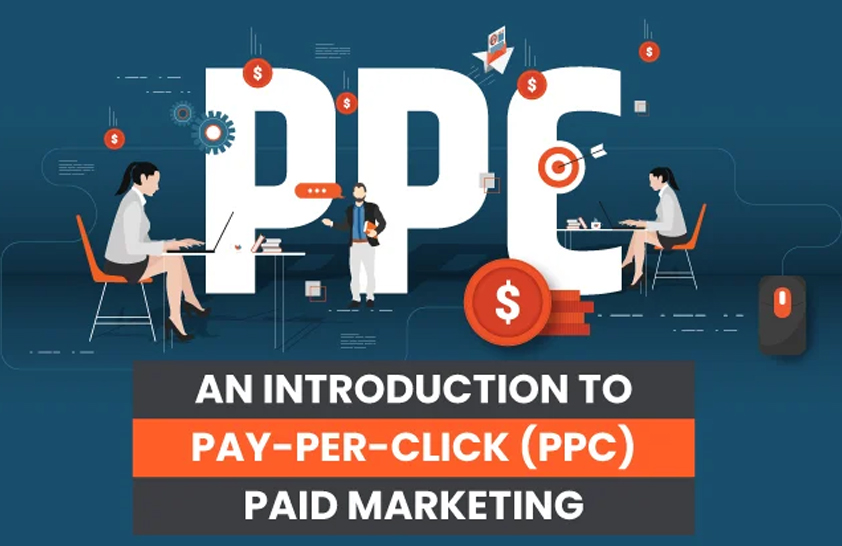Top 10 Common PPC Mistakes and How to Avoid Them

Strong 8k brings an ultra-HD IPTV experience to your living room and your pocket.
Introduction
Pay-Per-Click (PPC) advertising is a powerful tool for businesses looking to drive traffic, increase conversions, and boost revenue. However, many marketers make avoidable mistakes that can hinder the success of their PPC campaigns. In this article, we'll explore the top 10 common PPC mistakes and how you can avoid them to ensure your campaigns deliver optimal results.
What is PPC?
Advertisers that use the Pay-Per-Click (PPC) online advertising strategy must pay a fee each time one of their ads is clicked. Instead of attempting to get website views organically, this strategy involves buying them. Google Ads is the most popular PPC platform, but others like Bing Ads, Facebook Ads, and LinkedIn Ads also offer PPC advertising opportunities.
The Importance of PPC for Businesses
PPC is crucial for businesses because it allows them to reach their target audience quickly and efficiently. In contrast to SEO, which may take months to provide results, PPC can start driving visitors right away. Moreover, PPC campaigns can be highly targeted, enabling businesses to reach specific demographics, locations, and even times of day.
Common PPC Mistakes
Not Defining Clear Goals
In PPC advertising, one of the most commonly made mistakes is not defining clear goals. Without specific objectives, it's challenging to measure success or optimize campaigns effectively. Whether your goal is to increase brand awareness, generate leads, or drive sales, having clear, measurable goals is essential.
Ignoring Keyword Research
Keyword research is the cornerstone of any effective PPC campaign. Ignoring this step can lead to wasted ad spend on irrelevant or low-performing keywords. Comprehensive keyword research helps identify the terms your target audience is searching for, ensuring your ads appear to the right people.
Poor Ad Copy
The first thing potential buyers see about your business is the ad copy. Poorly written ad copy can lead to low click-through rates (CTR) and wasted budget. Ad content that works well should have a strong call-to-action (CTA), be clear, and be brief.
Not Utilizing Negative Keywords
Negative keywords are terms you don’t want your ads to appear for. Not utilizing negative keywords can result in your ads being shown to irrelevant audiences, leading to wasted clicks and budget.
Mismanaging Budget Allocation
Improper budget allocation is a common pitfall in PPC. Whether it’s overspending on low-performing keywords or underfunding high-converting ones, mismanagement of your budget can significantly impact your campaign's success.
Ignoring Mobile Users
With more people accessing the internet via mobile devices, ignoring mobile optimization can be a costly mistake. Your PPC ads must be mobile-friendly to capture this growing segment of users.
Not Tracking Conversions
Monitoring conversions is essential for assessing the performance of your PPC advertising. Without it, you won't know which keywords, ads, or landing pages are driving conversions, making it impossible to optimize effectively.
Overlooking Ad Extensions
Ad extensions provide additional information that can make your ad more appealing. Overlooking these can result in missed opportunities to improve your ad's visibility and click-through rate.
Failing to Optimize Landing Pages
Even if your ads are performing well, poor landing page design can hinder conversions. It's essential to ensure that your landing pages are optimized for user experience and relevance to the ad.
Not Testing and Iterating
PPC is not a set-it-and-forget-it strategy. Not testing different elements of your campaigns and iterating based on performance data can lead to stagnation and suboptimal results.
How to Avoid Common PPC Mistakes
Setting Clear Goals
To avoid the pitfall of unclear objectives, start by defining specific, measurable goals for your PPC campaigns. Whether you aim to increase website traffic, boost sales, or generate leads, having a clear goal will guide your strategy and help you measure success.
Conducting Comprehensive Keyword Research
Invest time in thorough keyword research using tools like Google Keyword Planner, SEMrush, or Ahrefs. Identify high-performing keywords that align with your business goals, and regularly update your keyword list based on performance data.
Crafting Compelling Ad Copy
Write an ad copy that resonates with your target audience. Focus on highlighting the unique selling points (USPs) of your product or service, and always include a compelling call-to-action (CTA) that encourages users to click.
Using Negative Keywords Effectively
Regularly review your search term reports to identify irrelevant keywords and add them to your negative keyword list. This will help you avoid wasting budget on unqualified traffic.
Budget Management Best Practices
Allocate your PPC budget strategically by focusing on high-performing keywords and campaigns. Consider using automated bidding strategies to optimize your budget allocation and maximize ROI.
Optimizing for Mobile Users
Ensure that your ads are mobile-optimized by using responsive design and mobile-specific ad copy. Test your ads on various devices to ensure they look and perform well on mobile.
Implementing Conversion Tracking
Set up conversion tracking in your PPC platform to monitor which keywords, ads, and landing pages are driving conversions. Use this data to make informed decisions and optimize your campaigns for better results.
Utilizing Ad Extensions
Take advantage of ad extensions like site links, callouts, and structured snippets to provide additional information and increase your ad's visibility. These extensions can improve your ad's CTR and overall performance.
Optimizing Landing Pages
Work closely with your web development team to ensure that your landing pages are optimized for speed, user experience, and relevance to the ad. A/B test different landing page designs to find the most effective version.
Continuous Testing and Iteration
Regularly conduct A/B tests on your ad copy, keywords, and landing pages. Use the data from these tests to refine and improve your campaigns continuously.
Future Trends in PPC
As technology evolves, PPC is likely to become more automated, with AI playing a significant role in campaign management. Marketers should stay updated on emerging trends such as voice search, AI-driven bidding strategies, and enhanced audience targeting to remain competitive.
Conclusion
Avoiding common PPC mistakes is crucial for running successful campaigns. By setting clear goals, conducting thorough keyword research, and continuously testing and optimizing, you can maximize your PPC performance and achieve your marketing objectives. Consider enrolling in a digital marketing training institute in Delhi, Noida, Lucknow, or other cities in India to gain a deeper understanding of PPC strategies and best practices. This will equip you with the knowledge and skills needed to create and manage effective campaigns.
Note: IndiBlogHub features both user-submitted and editorial content. We do not verify third-party contributions. Read our Disclaimer and Privacy Policyfor details.







